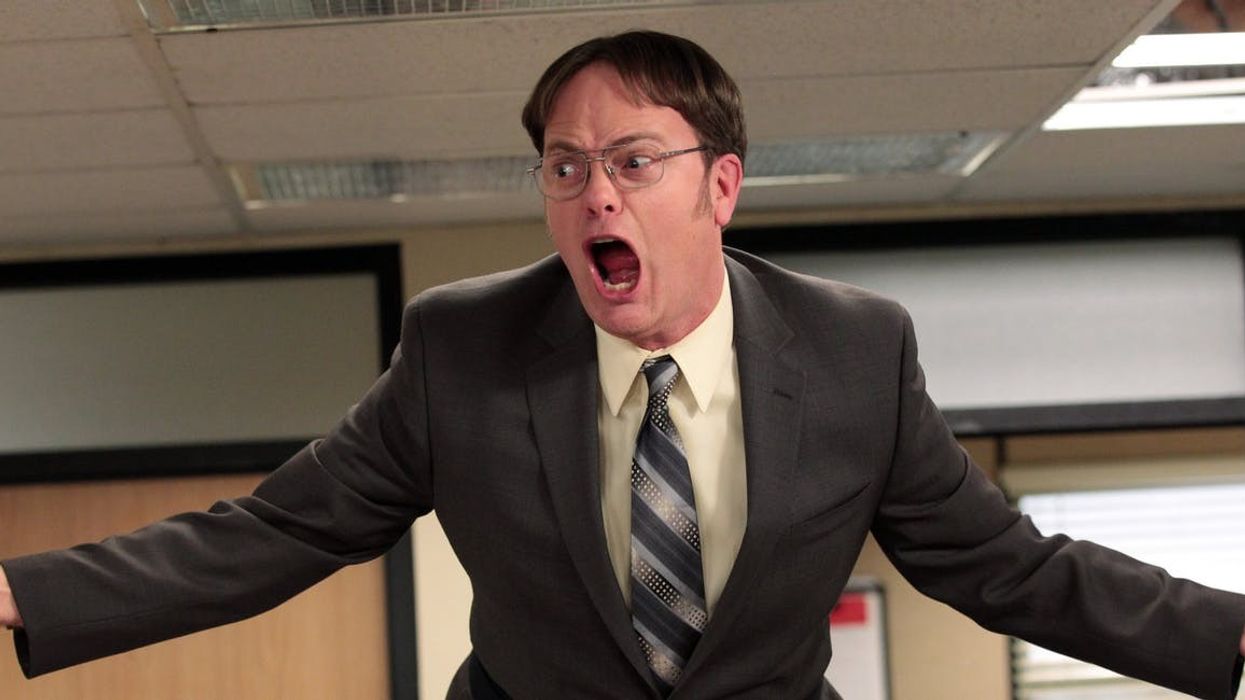How Dwight From 'The Office' Can Show You How to Write Backstory
Learning how to write backstory can deepen any character's arc. And maybe the best use of it is Dwight from The Office.

Have you ever wondered what happened before your favorite film or television show began?
We call that stuff backstory, and it's just as important as the forward progress you'll be writing because it informs the story and can keep the audience interested in the story to come. When you're developing a character you want to build their backstory so the actor knows what to do and the audience knows what to expect. But what sets some backstories apart from others.
And how can you create a backstory that's both unique and carries emotional depth? Let's go over some basic strategies for creating character backstories by using Dwight from The Office as our lead example.
Let's go to Schrute Farms!
How to Write Backstory Using Dwight from 'The Office'
A great backstory should:
1. Intrigue viewers to want to get to know a character.
2. Explain why the character is the way they are.
3. Unlock ways a character still needs to arc.
Dwight Schrute's backstory
Dwight Kurt Schrute III is the assistant to the regional manager at Dunder-Mifflin in Scranton, Pennsylvania. He owns a beet farm that has been in his family for generations, and he's one of the best salesmen at the paper company.
A survivalist with extensive outdoor experience, he's a part-time sheriff, a full-time ladies man, and a complete nerd. He loves bears, beets, Battlestar Galactica, Harry Potter, Star Wars, and lots of other fandoms. And his grandfather may have fought for the Nazis in World War II.
His nemesis is Jim. His best friend is Pam.
How Backstory Helps Dwight's Arc
Okay, now that you know all about Dwight, let's talk about how it affects the writing of The Office.
When you're writing a TV Show Bible or just planning your season in the room, you need to outline 22 episodes. That's not a simple task. Now imagine doing that for at least five seasons. You're going to run out of stories pretty fast.
That means you need to tap into the characters past to develop stories for the present. The past is where we found our Don Draper was raised by hookers, Liz Lemon's family was too loving, and whatever that "Great White Buffalo" thing was from Hot Tub Time Machine.
I think Dwight's past is the deepest of all the characters on the hit sitcome, considering how many time The Office used it to drive a narrative. Think about it. A deep backstory is enough to carry dozens of episode starters and throughlines. And Dwight has some of the best.
Dwight's Sherrif experience has him drug test the office. Dwight's survival experience has him take Michael into the woods to bond. His beet farm is the location for Angela's wedding and Jim/Pam's Bed and Breakfast getaway.
Dwight's sales record takes Michael on a journey as a corporate speaker. And don't get me started on the Christmas episodes or when Dwight finally becomes the manager.
Dwight's obsession with safety leads to maybe the funniest cold open of all time.
How Can You Craft Better Backstories?
Backstories need to be built on. No detail is too small. Remember: Indiana Jones was named after the dog!
Dwight is in a long line of Schrutes who never coddled or cradled anyone. But the best backstories help characters overcome them and become something else (or sink into them further).
Dwight has such an amazing backstory because it does the heavy lifting when it comes to episode ideas, but also provides a ton of help for his arc. Dwight needs to learn to hug, be held, and settle down with one woman. He needs to learn the interpersonal aspects his backstory is missing, and he needs to see a life outside of being the best salesman and Michael's number two.
When you're crafting your backstories, make sure they are relevant to the arcs the characters are chasing in the present.
What happened in the past that informs the future?
In episodes that focus on them, what do we learn about their past that changes their present?
What changes in the present can help them reconcile their past?
What's next? 4 changes to Michael Scott that made The Office a hit!
The Office was almost canceled after the first season. They turned things around with one character. During the first season of The Office, the show relied on the character tenets of the British version to put forth a meaner, less redemptive Michael Scott.











